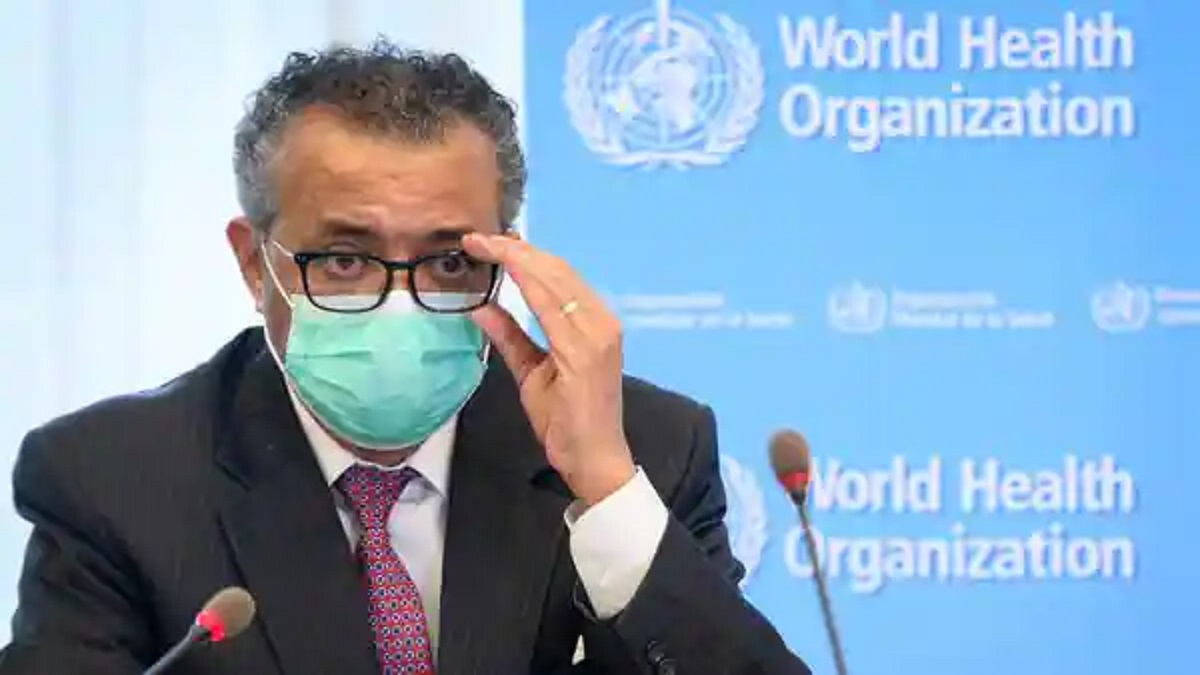 Image Source : AP WHO requires motion to guard youngsters from contaminated medicines after cough syrups deaths
Image Source : AP WHO requires motion to guard youngsters from contaminated medicines after cough syrups deaths
Cough syrups row: In the wake of fatalities amongst youngsters linked to cough syrups and medicines made by producers primarily based in India and Indonesia, the WHO has issued an “pressing name to motion” to international locations to detect and reply to incidents of falsified medical merchandise and defend youngsters from contaminated medicines.
The World Health Organisation (WHO) mentioned that over the previous 4 months, international locations reported a number of incidents of over-the-counter cough syrups for youngsters with confirmed or suspected contamination with excessive ranges of diethylene glycol (DEG) and ethylene glycol (EG).
The instances are from a minimum of seven international locations, related to greater than 300 fatalities in three of those international locations, with most younger youngsters below the age of 5. The WHO mentioned the contaminants are poisonous chemical compounds used as industrial solvents and antifreeze brokers that may be deadly even in small quantities, and will by no means be present in
medicines.
What WHO mentioned?
“WHO is releasing an urgent call to action to countries to prevent, detect and respond to incidents of substandard and falsified medical products,” the worldwide well being company mentioned. Since October final yr, the WHO has issued three international medical alerts over substandard paediatric medicines and syrups.
In October 2022, it issued an alert over Promethazine Oral Solution, Kofexmalin Baby Cough Syrup, Makoff Baby Cough Syrup and Magrip N Cold Syrup manufactured by Maiden Pharmaceuticals Limited, Haryana, India. The 4 “substandard products” had been recognized within the Gambia and reported to the WHO in September 2022.
In November, an alert was issued by the WHO over eight merchandise, together with Unibebi Cough Syrup, Unibebi Demam Paracetamol Drops and Unibebi Demam Paracetamol Syrup, recognized in Indonesia and manufactured by PT Afi Farma.
WHO warned towards use of two “substandard” cough syrups
Earlier this month, the WHO issued an alert to warn towards using two “substandard” cough syrups manufactured by Marion Biotech, India which have been linked to the deaths of 18 youngsters in Uzbekistan.
Ambronol syrup and DOK-1 Max syrup had been manufactured by Marion Biotech, primarily based in Noida, Uttar Pradesh. The international well being organisation issued the alert saying the syrups fail to satisfy high quality requirements and comprise contaminants that may show deadly. The WHO’s medical product alerts had been quickly disseminated to the nationwide well being authorities of all 194 WHO Member States.
These medical product alerts requested the detection and elimination of contaminated medicines from circulation within the markets; elevated surveillance and diligence inside the provide chains of nations and areas prone to be affected; instant notification to WHO if these substandard merchandise are found in-country; and in any other case inform the general public of the hazards and poisonous results of the substandard medicines at problem.
WHO requires elimination of substandard medical merchandise
It famous that since these should not remoted incidents, the WHO referred to as on regulators and governments to detect and take away from circulation of their respective markets any substandard medical merchandise which have been recognized within the alerts as potential causes of demise and illness; be certain that all medical merchandise of their respective markets
are accepted on the market by competent authorities and obtainable from authorised/licensed suppliers.
ALSO READ: Indian-made cough syrups didn’t trigger Gambia youngsters deaths, DCGI informs WHO
It additionally urged authorities to assign acceptable sources to enhance and enhance risk-based inspections of producing websites inside their jurisdiction in accordance with worldwide norms and requirements and enact and implement legal guidelines and different related authorized measures to assist fight the manufacture, distribution and/or use of substandard and falsified medicines.
The WHO referred to as on producers of medicines to solely buy pharmaceutical grade excipients from certified and bona fide suppliers; conduct complete testing upon receipt of provides and earlier than use within the manufacture of completed merchandise and supply assurance of product high quality together with by means of certificates of analyses primarily based on acceptable testing outcomes.
It additionally urged suppliers and distributors of medical merchandise to at all times verify for indicators of falsification and bodily situation of medicines and different well being merchandise they distribute and/or promote and solely distribute and/or promote medicines authorised by, and from sources accepted by, competent authorities amongst different measures.
ALSO READ: WHO recommends towards utilizing Noida-based Marion Biotech’s cough syrups in Uzbekistan following collection of demise
In December, India’s drug regulator informed the WHO that the worldwide well being physique drew a untimely hyperlink between the deaths of youngsters in Gambia and the 4 India-made cough syrups which adversely impacted the picture of the nation’s pharmaceutical merchandise throughout the globe.
In a letter to Dr Rogerio Gaspar, Director (Regulation and Prequalification) at WHO, DCGI Dr V G Somani mentioned a press release issued by the worldwide well being physique in October within the wake of the deaths “was unfortunately amplified by the global media which led to a narrative being built internationally targeting the quality of Indian pharmaceutical products”.
Latest World News




